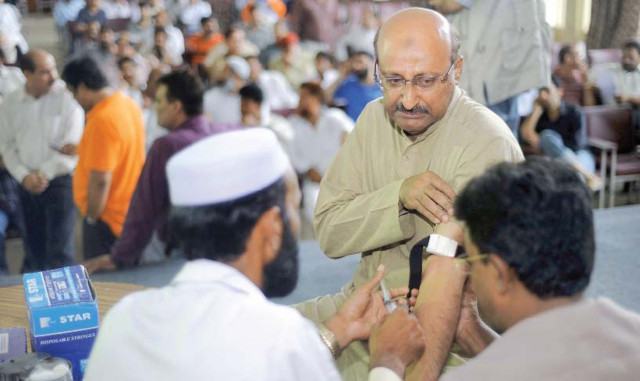
Nine-year-old Riffat Buksh is one of Nusrat and Qadir’s four children. Two years ago, her younger sister Nuzhat fell extremely ill. The parents rushed from Dadu to Karachi in search of an answer to her condition. Many expensive tests and medication later, they learnt that their daughter needed a bone marrow transplant to survive.
Doctors immediately recommended testing her siblings as immediate blood relatives are most likely (25 to 30 per cent) to be a match. Luckily, for Nusrat and Qadir, Riffat was a match for her sister. According to studies, despite the large family size in Pakistan, with an average of 4.6 siblings per household, nearly half of patients are unable to find a match. This often proves fatal.
“I was terrified and I had no idea of what was going on,” a tomboyish Riffat told The Express Tribune. All the young girl understood then was her parents’ sadness and that her sister may not be around for her to play with. Thankfully, Nuzhat’s transplant with Riffat’s help was successful and the five-year-old is recovering.
Barely a year later, however, the Buksh family faced a similar ordeal. Their youngest son, four-year-old Fayyaz, also fell ill and needed a transplant. “God was testing us but I vowed to let nothing happen to my children,” said their mother Nusrat.
The siblings were tested again and Riffat was once more selected as a match for her younger brother. “My Riffat is such a brave girl,” her mother says proudly. “Once we knew she was a match she came up to me and said, I’m not scared this time, I will give Fayyaz my marrow.”
Riffat’s story is unique as she was able to donate twice. There are hundreds of brothers and sisters across the country who have saved their sibling’s lives by donating their bone marrow.
According to consultant haematologist at the National Institute of Blood Diseases (NIBD), Dr Tahir Shamsi, about 3,000 patients need the transplants in Pakistan. However, only around 100 are able to get it. “This is because of a lack of facilities, the lack of HLA-identical donors (sibling matches), limited expertise in a limited number of centres and financial constraints,” he explains.
Centres where the procedure is available are the NIBD and Aga Khan Hospital in Karachi, the Combined Military Hospital in Rawalpindi and PIMS in Islamabad. If a patient does not find a match in their sibling or if they are the only child, their options are limited and thus they have a bleaker chance of recovery.
Shamsi suggests a few alternatives. “A registry of volunteer marrow donors nationwide or umbilical cord blood banks could be set up to maintain an inventory of over 30,000 donors and blood bags.” According to the renowned doctor, this would provide another 25 to 35 per cent of patients with a realistic chance of finding a donor.
“Presently, Pakistan does not have the culture of voluntary blood donation, let alone volunteering for organ donation,” Shamsi says, adding the lack of a cord blood banks in the public or private sectors is regretted.
In such a situation, centres are “forced” to follow the example of China, Japan and Korea where mothers donate the bone marrow for their children. Doctors explain that a mother’s immune system is “recognised and tolerated well” by the child due to their “previous acquaintance during pregnancy.”
But finding a match isn’t the end of the road. Next, families need to prepare for the daunting medical bills. A bone marrow transplant, excluding medication and post-transplant care, can ring up a Rs1.8 million bill. Medicines, depending on the patient’s requirements, can cost between Rs25,000 and Rs50,000 a month.
Dilshad Fatima’s 20-year-old daughter Amar fell seriously ill seven months ago. To date she says her bills add up to about Rs5 million.
Seven months ago, Amar developed red marks on her arms and feet. In a few days they became dark red spots covering her face. Her mother took her to the hospital and after a series of tests learnt that her daughter required chemotherapy and a bone marrow transplant. “Doctors at a government hospital told me she was 85 per cent dead,” Dilshad says her tone simmering with anger. “I didn’t know how I would collect the money for the procedures nor did I care about some of the figures doctors were throwing at me. I just knew I wasn’t going to let my daughter die,” she says.
When asked about her ordeal, Amar says, “It was horrible but I didn’t let it get to me, I put my faith in God. And of course my mother gave me strength.” After a brief silence she slowly opens up. “I would throw up everything I consumed and barely had any energy to move,” she says. “At times I thought perhaps...,” but she refrains from completing the sentence.
Thanks to a few generous souls and doctors at the NIBD, Amar’s procedure was fully paid for once her brother Ahsan Abbas was found as a match.
At present, Amar wears a face mask to hide the dark growth of facial hair and she still feels weak but is happy to be around family and loved ones.
For his part, Ahsan is grateful he could help his beloved sister, calling the bone marrow donation, “an amanat” he had of hers.
While the average period for recovery is about six weeks, there are several complications (or side effects) to the transplant. These include fever, sore mouth, diarrohea, hair loss, vomiting, jaundice, infections, rejection of the marrow and graft.
Riffat is perhaps too young to understand her great contribution to her family’s happiness but Amar is all too aware of her family’s fight for her survival. “Soon I hope to fully recover and help others against this illness that I wouldn’t even wish on my worst enemy,” she says assertively.
Published in The Express Tribune, April 2nd, 2011.
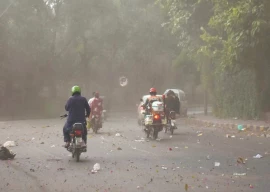



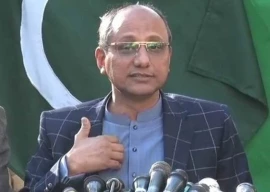

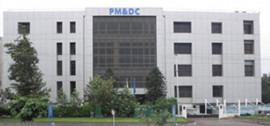

1726054615-0/OpenAI-(2)1726054615-0-270x192.webp)
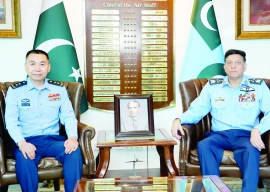
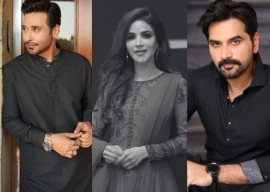




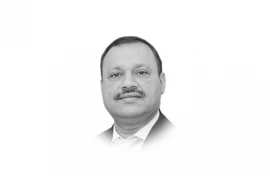
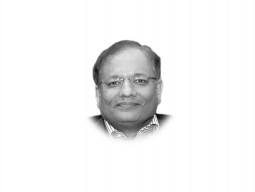

COMMENTS
Comments are moderated and generally will be posted if they are on-topic and not abusive.
For more information, please see our Comments FAQ